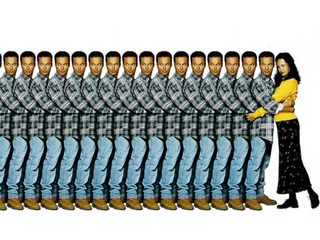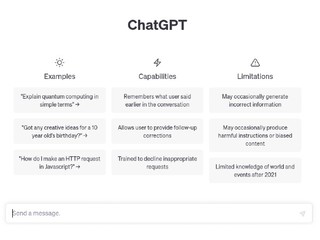Trump rescinds Biden executive order on artificial intelligence
The EO set AI safety and security standards and called for a report on AI's impact on labor
Read more...Immortality has been a recurring theme in sci-fi forever (pardon the pun), and while Queen’s “Who Wants To Live Forever?” suggests no one does – let’s face it, it’s an alluring perspective. Well, immortality is around the corner – in virtual form, anyway.

Miami-based startup Delphi announced this week it scored $2.7 million in funding for its AI digital cloning tool aiming to connect living humans with the wisest, be it from the past or present.
It sure sounds like immortality or time travel, and Delphi does boldly say on its website that its product “breaks down the barriers of time and access” and “births digital immortality.”
Cloning with Delphi comes in the form of chat or voice communication. A user would upload written or spoken materials of a person she or he wants to communicate with for the platform to analyze. The tool will then generate responses to prompts based on the person’s principles and thought and – voila! – the user can interact with the clone via AI chatbot or voice.
Delphi’s technology uses open-source AI models paired with its own analysis tool. The result, as the company affirms, is a dynamic dialogue between the user and the clone, made to reason like its original and generate new insight – rather than passively repeating said words from the past.
Founded in late 2022, Delphi has just closed its seed fundraising that attracted Lux Capital, Xfund, MVP Ventures, SaxeCap, and angel investors Balaji Srinivasan, Eight Sleep’s Matteo Franceschetti, Soylent’s John Coogan, and AngelList’s Avlok Kohli, among others. Leading the round was Keith Rabois, general partner at the famed Founders Fund, known for backing companies like Airbnb, SpaceX, Affirm, and Palantir.
Co-founders of Delphi are Dara Ladjevardian and Sam Spelsberg. Ladjevardian told VentureBeat that he has cloned himself and held a spoken conversation with his counterpart, which he called “weirdly therapeutic.” The CEO said his idea for Delphi came from his longing to communicate with his deceased grandfather, an entrepreneur in Iran.
On its website, Delphi points to another value of its product: the democratization of information. Access to the knowledge of influential thinkers has been limited by time and resources, and the general public has little chance to hold a one-on-one conversation with someone like, say, the Dalai Lama. With Delphi, the company says, “the movers and shakers of our world […] touch more lives.”
So far, Delphi created chatbot clones of several ancient philosophers including Aristotle, Socrates, and Lao-Tzu; all U.S. presidents dead or alive; and famous figures like Steve Jobs, Jeff Bezos, and Robert Oppenheimer. So far, about 100 users of Delphi have created their own clones – while others, like noted physician Peter Attia, requested their clone be removed, according to VentureBeat.
Personally, I’m left wondering whether the clone of Albert Einstein could generate new theories and formulas to explain what he hasn’t gotten to explain. It would also be quite interesting to follow a conversation between Neil deGrasse Tyson and Einstein’s clone. Or even a chat between the clones of Einstein and Stephen Hawking – wouldn’t that be stellar?
The EO set AI safety and security standards and called for a report on AI's impact on labor
Read more...The agency also published draft guidance on the use of AI in drug development
Read more...The biggest focus areas for AI investing are healthcare and biotech
Read more...

